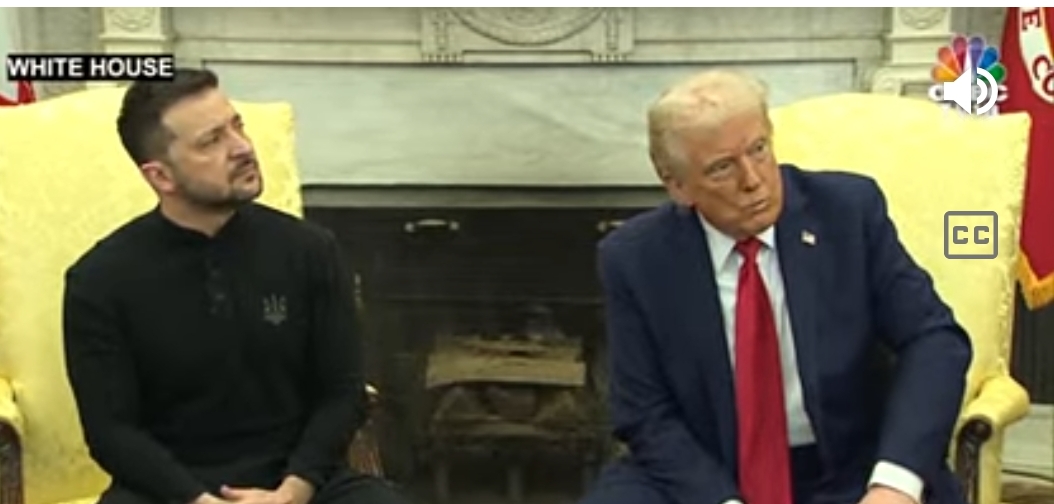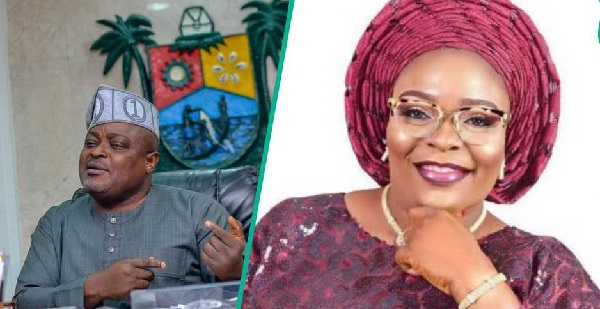Trending News
Global Rift: World Leaders React to Zelensky-Trump Deadlock
 Based on the context provided from various sources, the meeting between Ukrainian President Volodymyr Zelensky and U.S. President Donald Trump on February 28, 2025, at the White House devolved into a
Based on the context provided from various sources, the meeting between Ukrainian President Volodymyr Zelensky and U.S. President Donald Trump on February 28, 2025, at the White House devolved into a
 Based on the context provided from various sources, the meeting between Ukrainian President Volodymyr Zelensky and U.S. President Donald Trump on February 28, 2025, at the White House devolved into a contentious deadlock, marked by heated exchanges and a failure to reach an agreement on key issues like a minerals deal and U.S. support for Ukraine in its war with Russia. This public breakdown elicited a wide range of reactions from world leaders, reflecting their geopolitical alignments and perspectives on the Russia-Ukraine conflict. Below is an account of these reactions:
Based on the context provided from various sources, the meeting between Ukrainian President Volodymyr Zelensky and U.S. President Donald Trump on February 28, 2025, at the White House devolved into a contentious deadlock, marked by heated exchanges and a failure to reach an agreement on key issues like a minerals deal and U.S. support for Ukraine in its war with Russia. This public breakdown elicited a wide range of reactions from world leaders, reflecting their geopolitical alignments and perspectives on the Russia-Ukraine conflict. Below is an account of these reactions:
European Leaders: Solidarity with Zelensky
European leaders swiftly rallied around Zelensky, expressing dismay at the confrontation and reaffirming their support for Ukraine. French President Emmanuel Macron emphasized Russia’s role as the aggressor, stating, “There is an aggressor which is Russia. There is an aggressed people which is Ukraine,” and underscored the correctness of supporting Ukraine and sanctioning Russia over the past three years. Polish Prime Minister Donald Tusk offered a direct message of reassurance on X, writing, “Dear Zelensky, dear Ukrainian friends, you are not alone.” Spanish Prime Minister Pedro Sánchez echoed this sentiment, posting, “Ukraine, Spain stands with you,” while Norwegian Prime Minister Jonas Gahr Støre called Trump’s accusation that Zelensky was “gambling with World War III” deeply unreasonable, adding, “Norway stands with Ukraine in their struggle for freedom.”
Other European figures, such as Dutch Prime Minister Dick Schoof and leaders from Lithuania, Latvia, Sweden, and Moldova, also voiced solidarity, with Schoof noting, “The Netherlands continues to support Ukraine. Especially now.” EU leaders Ursula von der Leyen and Antonio Costa jointly praised Zelensky’s dignity, stating, “You are never alone, dear President Zelensky,” and pledged continued efforts for a just peace. The EU’s top diplomat, Kaja Kallas, suggested the incident marked a turning point, tweeting, “Today, it became clear that the free world needs a new leader,” hinting at Europe’s readiness to step up amid U.S. wavering.
Russian Reaction: Glee and Mockery
In stark contrast, Russian officials celebrated the discord, viewing it as a humiliation for Zelensky and a strategic win for Moscow. Former President Dmitry Medvedev, now deputy head of Russia’s Security Council, called Zelensky an “insolent pig” who received “a proper slap down” in the Oval Office. Foreign Ministry spokesperson Maria Zakharova remarked sarcastically that it was a “miracle” Trump and Vice President JD Vance didn’t physically assault Zelensky, while Konstantin Kosachyov, a senior Russian lawmaker, claimed Zelensky “lost this round with a deafening rattle.” Kremlin-aligned figures like Andrei Klishas dubbed the encounter a “brilliant result,” mocking Zelensky as a “clown” ejected for bad behavior, reflecting Russia’s delight in the fracture of U.S.-Ukraine relations.
U.S. Perspectives: Divided Reactions
Within the U.S., reactions were polarized along partisan lines. Democratic leaders condemned Trump and Vance’s treatment of Zelensky as shameful. Senate Minority Leader Chuck Schumer accused them of “doing Putin’s dirty work,” while Senator Chris Coons defended Zelensky’s gratitude, noting, “Every time I’ve met with President Zelenskyy, he’s thanked the American people.” Senator Adam Schiff contrasted Zelensky as a “hero” to Trump’s “cowardice,” and Representative Hakeem Jeffries called the meeting “appalling,” warning it emboldened Putin.
Conversely, some Republicans praised Trump’s stance. House Speaker Mike Johnson supported Trump’s push for a minerals deal, arguing it showed an “America First” approach, while Senator Marco Rubio and Representative Mario Díaz-Balart lauded Trump’s leadership. However, hawkish Republicans like Senator Lindsey Graham expressed concern, suggesting Zelensky either “resign” or “change” to salvage U.S. support, calling the exchange a “bad day for America’s foreign policy.”
Other Global Voices
Reactions beyond Europe and Russia were less detailed in the sources but included notable stances. German opposition leader Friedrich Merz, likely the next chancellor, assured Zelensky, “We stand with Ukraine in good and in testing times.” The UK’s response was muted immediately after the event, with no direct comment from Prime Minister Keir Starmer, though former PM Boris Johnson, a Zelensky ally, also remained silent initially. Posts on X from users like @Gilbro2010 highlighted this global split, noting a mix of solidarity with Ukraine and approval of Trump’s actions among international observers.
Summary
The deadlock between Zelensky and Trump on February 28, 2025, exposed deep fissures in international relations. European leaders overwhelmingly backed Zelensky, emphasizing Ukraine’s victimhood and the need for sustained support against Russia. Russian officials reveled in the chaos, seeing it as a weakening of their adversary. In the U.S., the incident deepened partisan divides, with Democrats decrying it as a betrayal and some Republicans framing it as a necessary recalibration of priorities. The absence of a signed minerals deal and the cancellation of a joint press conference underscored the meeting’s failure, leaving Ukraine’s future U.S. support uncertain and prompting a global reassessment of alliances as of March 1, 2025.
Senator Natasha Akpoti-Uduaghan Addresses Corruption Allegations, Senate Disputes, and Tense Relationship with Senate President in Explosive YouTube Video from Arise TV
 February 28, 2025 – A recently uploaded YouTube video featuring Senator Natasha Akpoti-Uduaghan has sparked widespread attention as the Nigerian lawmaker tackled a series of contentious issues surroun
February 28, 2025 – A recently uploaded YouTube video featuring Senator Natasha Akpoti-Uduaghan has sparked widespread attention as the Nigerian lawmaker tackled a series of contentious issues surroun
 February 28, 2025 – A recently uploaded YouTube video featuring Senator Natasha Akpoti-Uduaghan has sparked widespread attention as the Nigerian lawmaker tackled a series of contentious issues surrounding her tenure in the Senate. In the detailed interview, the senator, who chairs the Local Content Committee, responded to allegations of corruption, a highly publicized dispute over her Senate seat, her strained relationship with the Senate President, and a mysterious "nightclub incident" that culminated in an apology. The video, which runs over 30 minutes, has reignited debates about integrity, power dynamics, and privilege within Nigeria’s legislative body.
February 28, 2025 – A recently uploaded YouTube video featuring Senator Natasha Akpoti-Uduaghan has sparked widespread attention as the Nigerian lawmaker tackled a series of contentious issues surrounding her tenure in the Senate. In the detailed interview, the senator, who chairs the Local Content Committee, responded to allegations of corruption, a highly publicized dispute over her Senate seat, her strained relationship with the Senate President, and a mysterious "nightclub incident" that culminated in an apology. The video, which runs over 30 minutes, has reignited debates about integrity, power dynamics, and privilege within Nigeria’s legislative body.
Allegations of Corruption Refuted
Senator Akpoti-Uduaghan directly confronted accusations leveled against her by a Northern youth association, which claimed that her office had engaged in corrupt practices during her oversight of the Local Content Committee. The senator passionately denied these allegations, calling them "baseless" and an attack on her integrity. She elaborated further, asserting that the claims were a deliberate attempt to undermine her efforts to promote transparency and accountability in her role. "These accusations are not just false—they’re a calculated move to tarnish my reputation and hinder the work I’m doing for my constituents," she stated firmly.
Senate Seat Dispute Sparks Confrontation
The video opened with a discussion of a dramatic incident in the Senate chamber, where Senator Akpoti-Uduaghan clashed with Senate leadership over the reassignment of her designated seat. The controversy escalated into a confrontation with the Senate President, whom she accused of orchestrating the move as a punitive measure. She explained her decision to invoke Order 10—a Senate rule she believes protects her privileges as a lawmaker—arguing that the reassignment was an unjust breach of her rights. "I refused to move because it wasn’t about a chair; it was about my dignity and the respect owed to every senator," she said, emphasizing the symbolic weight of the dispute.
Tense Relationship with Senate President
Perhaps the most explosive revelations came later in the video, when Senator Akpoti-Uduaghan accused the Senate President of leveraging his authority to obstruct her legislative work. She alleged that he had made inappropriate advances toward her—an accusation she expanded upon—claiming that her rejection of these advances triggered a campaign to malign her and strip away her senatorial privileges. "He used his position to punish me for standing my ground," she asserted, painting a picture of a vindictive power struggle within the Senate’s upper echelons. These claims have raised serious questions about gender dynamics and abuse of power in Nigeria’s political sphere.
The Nightclub Incident and an Apology
Toward the end of the video, Senator Akpoti-Uduaghan addressed a so-called "nightclub incident" that has been the subject of speculation in political circles. While she did not provide exhaustive details, she alluded to a threatening phone call she received, which left her shaken. She recounted a subsequent apology from the Senate President, which she accepted, though her tone suggested lingering unease. "He called to apologize, and I accepted it because I believe in moving forward, but the damage was already done," she said, hinting at the broader fallout from the episode.
Broader Implications
The video has quickly gained traction online, drawing reactions from supporters who laud Senator Akpoti-Uduaghan’s courage and critics who question the veracity of her claims. Political analysts suggest that her statements could prompt formal investigations into the Senate President’s conduct and the inner workings of the Senate itself. As of February 28, 2025, no official response from the Senate leadership has been issued, but the allegations are likely to fuel ongoing debates about accountability and reform in Nigeria’s government.
Senator Akpoti-Uduaghan concluded the video with a call for unity and resilience among her constituents, urging them to focus on the broader goals of development and representation. Whether this exposé will bolster her standing or deepen the controversies surrounding her remains to be seen, but one thing is clear: the senator has thrust herself—and the Senate—into the national spotlight with this candid and confrontational account.
Comprehensive Report on the Court Case: Mudashiru Obasa vs. Lagos State House of Assembly
Presiding Judge: Hon. Justice Yetunde Pinheiro
Reported as of: 2:00 PM WAT
 On February 28, 2025, a significant court hearing took pl
On February 28, 2025, a significant court hearing took plPresiding Judge: Hon. Justice Yetunde Pinheiro
Reported as of: 2:00 PM WAT
 On February 28, 2025, a significant court hearing took place at the Lagos State High Court in Ikeja regarding a legal challenge filed by Mudashiru Obasa, the impeached Speaker of the Lagos State House of Assembly. Obasa is contesting the legality of his removal from office on January 13, 2025, and has sought judicial intervention to secure his reinstatement. The defendants in the case are the Lagos State House of Assembly and the current Speaker, Mojisola Lasbat Meranda. Today's proceedings marked a pivotal moment in the ongoing leadership crisis within the Assembly, drawing significant attention due to its political and legal implications.
On February 28, 2025, a significant court hearing took place at the Lagos State High Court in Ikeja regarding a legal challenge filed by Mudashiru Obasa, the impeached Speaker of the Lagos State House of Assembly. Obasa is contesting the legality of his removal from office on January 13, 2025, and has sought judicial intervention to secure his reinstatement. The defendants in the case are the Lagos State House of Assembly and the current Speaker, Mojisola Lasbat Meranda. Today's proceedings marked a pivotal moment in the ongoing leadership crisis within the Assembly, drawing significant attention due to its political and legal implications.-
Political Intervention: Efforts to resolve the dispute politically, including interventions by President Bola Tinubu and the APC’s Governance Advisory Council (GAC), have failed. Tinubu reportedly directed Obasa’s reinstatement, but resistance from lawmakers loyal to Meranda persisted.
-
Obasa’s Return: On February 27, 2025, Obasa made a dramatic appearance at the Assembly complex, accompanied by armed security operatives, fueling speculation of an attempt to forcibly reclaim his position. This followed the withdrawal of security details from Meranda, raising concerns about her safety.
-
Assembly’s Stance: Thirty-six lawmakers have consistently backed Meranda, passing a vote of confidence in her leadership and warning Obasa against destabilizing the legislative body.
-
Court Order to Join All Lawmakers:
In a significant ruling, Justice Pinheiro ordered that all 40 members of the Lagos State House of Assembly be joined as parties in Obasa’s suit. This decision effectively makes every lawmaker a stakeholder in the legal proceedings, reflecting the case’s broad impact on the Assembly. The ruling ensures that the perspectives of all members, including the 36 who voted for Obasa’s removal and those who may support him, will be considered. -
Presence of Lawmakers:
Thirty-five lawmakers, predominantly loyal to Speaker Meranda, attended the hearing at the Ikeja High Court to demonstrate solidarity with her leadership. Posts on X indicate that 34 or 35 members (depending on the source) stood with Meranda, underscoring the strong support she commands within the Assembly. Obasa’s supporters were also reportedly present, though their numbers were not specified. -
Adjournment to March 7:
The court adjourned the case to March 7, 2025, to allow time for all pending applications to be heard and for the newly joined parties to prepare their responses. This adjournment delays a final resolution but provides a structured timeline for addressing the complex legal and constitutional questions raised by Obasa’s suit.
-
Obasa’s Position:
Obasa’s legal team, led by Afolabi Fashanu (SAN), argues that the impeachment was invalid because it occurred during a recess without proper notice or authority to reconvene the House. They assert that this breached constitutional provisions and the Assembly’s own rules, rendering the proceedings null and void. Obasa seeks an order to nullify his removal, reinstate him as Speaker, and expedite the hearing to prevent disruption of legislative activities. -
Defendants’ Position (Assembly and Meranda):
While the defendants’ formal response is yet to be fully articulated in court (pending the March 7 hearing), statements from lawmakers suggest they view Obasa’s removal as lawful and within their constitutional rights under Section 92(2)(c), which allows a two-thirds majority to remove a Speaker. They have dismissed Obasa’s claims as baseless and urged him to accept the decision to maintain peace in the state.
-
Tinubu’s Influence: President Tinubu, a prominent APC leader with significant sway in Lagos, has reportedly backed Obasa’s reinstatement, but his directive has met resistance within the Assembly and the GAC. Some GAC members, like Muraina Akanbi Taiwo, have openly opposed Tinubu’s involvement, asserting that internal Assembly decisions should prevail.
-
APC Divisions: The crisis has exposed rifts within the APC, pitting Obasa’s loyalists against Meranda’s supporters. This division could have broader implications for party unity ahead of future elections.
-
Public Interest: Both sides have framed their arguments around public interest, with Obasa emphasizing legislative continuity and Meranda’s backers highlighting accountability and democratic principles.
Dangote Refinery Slashes Petrol Price Across Six Geo-Political Zones in Nigeria
 As of February 27, 2025, the Dangote Petroleum Refinery has announced a reduction in the ex-depot price of Premium Motor Spirit (PMS), commonly known as petrol, from N890 to N825 per litre, effective
As of February 27, 2025, the Dangote Petroleum Refinery has announced a reduction in the ex-depot price of Premium Motor Spirit (PMS), commonly known as petrol, from N890 to N825 per litre, effective
 As of February 27, 2025, the Dangote Petroleum Refinery has announced a reduction in the ex-depot price of Premium Motor Spirit (PMS), commonly known as petrol, from N890 to N825 per litre, effective February 27, 2025. This N65 decrease aims to alleviate the financial burden on Nigerians, particularly in anticipation of the upcoming Ramadan season, and to support President Bola Ahmed Tinubu's economic recovery policies.
As of February 27, 2025, the Dangote Petroleum Refinery has announced a reduction in the ex-depot price of Premium Motor Spirit (PMS), commonly known as petrol, from N890 to N825 per litre, effective February 27, 2025. This N65 decrease aims to alleviate the financial burden on Nigerians, particularly in anticipation of the upcoming Ramadan season, and to support President Bola Ahmed Tinubu's economic recovery policies.
Under the new pricing structure, consumers in Lagos can purchase petrol at N860 per litre at MRS Holdings stations. Prices vary by region, with the South-West at N870 per litre, the North at N880 per litre, and the South-South and South-East regions at N890 per litre. Other retailers, such as AP (Ardova Petroleum) and Heyden stations, have set their prices slightly higher, with Lagos at N865 per litre, the South-West at N875 per litre, the North at N885 per litre, and the South-South and South-East at N895 per litre.
This price adjustment is part of a series of reductions by the refinery. Earlier in February 2025, the ex-depot price was lowered by N60, and in December 2024, during the festive season, the price was reduced by N70.50, from N970 to N899.50 per litre. These efforts reflect the refinery's commitment to easing the cost of living for Nigerians and providing relief during significant periods.
The Dangote Petroleum Refinery has assured the public of a consistent supply of petroleum products, with sufficient reserves to meet domestic demand and a surplus for export, which is expected to enhance the country's foreign exchange earnings. The company has urged marketers to support this initiative to ensure that the benefits reach consumers directly.
These strategic price reductions and supply assurances are anticipated to positively impact the Nigerian economy by reducing transportation costs, lowering the prices of goods and services, and supporting overall economic recovery efforts.

